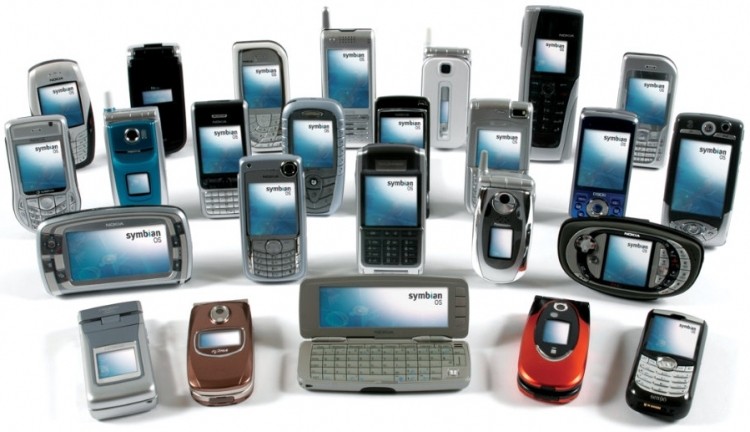It's been on a decline since 2007 and it was just barely above Android in the very beginning of 2011 (see the second graph in:
http://en.wikipedia.org/wiki/Mobile_operating_system#Market_share).
They simply lost track of the ever rapidly changing market and believed whatever they produced would sell. They did, but their competitors wouldn't simply watch by and sit on their asses for years to come.
The main debacle was obviously the lack of innovations. The multimeda (camera) equipped BlackBerry Pearl series back in 2006 proved to be highly successful, followed by the subsequent success of the Curve 8300 and Bold 9000 series. This was all pretty much due to extensive carrier partnerships, which fueled both enterprise and consumer markets.
Then came January 9 of 2007. The day that Steve Jobs revealed the iPhone, a device that Apple had been working on as the "Project Purple" since 2004. Boasting a powerful mobile browser, a new touch screen interface, strong multimedia capabilities and (later) a bundled application storefront with many mobile apps, the iPhone was already beginning to be referred to as the "BlackBerry Killer" by some in the media.
It took until 2008 for Nokia to start fighting off RIM with Nokia E71 and iPhone with 5800 XpressMusic. Both were well received. E71 was awarded both Editors' and Readers' Choice on CNET.co.uk, as well as the Phone of the Year and the Best Smartphone at the 2008 Mobile Choice Consumer Awards. 5800 XpressMusic also received full 5 stars in the January 2009 issue of the Mobile Choice magazine.
22 October 2008 also saw the release of another touchscreen device, the very first phone marketed to be running something called the Google Android mobile operating system. This was the HTC Dream, also known as the T-Mobile G1. 6 months later T-Mobile USA announced they had sold one million units. HTC's time had come and that of RIM's was already beginning to end. The subsequent releases of HTC Hero and Desire were a success. The Desire, strongly resembling the device that Linus Torvalds loved, Nexus One, was praised by Techradar as one of "the best they've ever had."
But like of so many before it, HTC's success was short-lived. With the release of the iPad in April 3, 2010 and the superseded version of the Nexus One now co-developed by Samsung/Google, the Nexus S, followed by the tremendously successful and attractive Galaxy S series Samsung and Apple started regaining their lost ground.
Which is how we arrive at today. With the fearsome competition at the mobile market with previous champions willing to do everything they can to regain their once lost glory it's an extremely crowded space. BlackBerry as well as Nokia are pretty much going all-in with their BlackBerry 10 and Nokia Lumia lines, respectively. iPhone 5 did not prove to bring out new innovation as much as expected, instead relying on what already had been done in Android. HTC will not sit by and watch the Galaxy S3 and now S4 hold onto its place as the best and most attractive Android phone. With the release of the superior build quality of the HTC One Samsung is now ready to adapt with the Galaxy Note 3 still rumored to continue with the long run plastic due to its similar desing with the S4.
The winner will not be decided by the biggest market share at whatever point in time, but the incessant flow of innovation and the new rule in the game: "adapt or die".
